
Roberto Gerhard (1896-1970): Re-appraising a Musical Visionary
Roberto Gerhard (1896-1970): Re-appraising a Musical Visionary
2nd-3rd July 2021, University of Huddersfield
Funded by the British Academy
Conference registration: Please click here
Gerhard Conference Schedule: Please click here to download
Convenors: Prof. Monty Adkins (University of Huddersfield) and Dr. Rachel Mann (University of Texas - Rio Grande Valley)
This conference, marking the 50th anniversary of the death of the composer Roberto Gerhard will illuminate the multidisciplinary influences on his compositional oeuvre and creative thinking. Gerhard is one of the most prominent Spanish composers of the 20th Century. His creative output encompasses works influenced by Catalan folk music, serialism, works for dance, film and the theatre as well as electronic sound composition. Gerhard studied and travelled widely during his lifetime, living in Spain, Germany, France throughout the 1920-1930s, and from 1939 until his death in 1970, in Cambridge, England. As a result of his travels and his wide-ranging interests, Gerhard came into contact with and was influenced by many of the leading artists, writers, thinkers, choreographers, theatre directors and scientists of his generation. Previous Gerhard scholarship has mainly been exploratory and analytical - it is only in the past decade that his work has begun to receive serious critical attention. This conference seeks to look outwards from Gerhard's compositions themselves and will explore two key interdisciplinary themes in relation to his life and work:
1) exile;
and
2) cultural translation.
Addressing these issues will lead to new insights into how Gerhard’s compositional aesthetic was informed and shaped by the interdisciplinary nature of his cultural interests, his collaborators, his position as a Spanish exile, and how the myriad of resulting cross-connections are reflected in his work.
Roberto Gerhard was born in 1896 in Valls, Spain. Initially he studied piano with Granados and composition with Felipe Pedrell. When Pedrell died in 1922, Gerhard moved to Vienna as a pupil of Arnold Schoenberg. Returning to Barcelona in 1928 he became a central figure in the Catalonian avant-garde, befriending such figures as Pablo Casals and Joan Miró. Identified with the Republican cause throughout the Spanish Civil War, Gerhard was forced to flee to France in 1939 and later that year settled in Cambridge, England. Once in England, Gerhard worked as a freelance composer, producing a series of orchestral and stage works that would establish his international reputation. The Symphony (in memory of Pedrell), the ballet Don Quixote, First String Quartet, and the opera The Duenna followed in quick succession. In the 1950s Gerhard developed his musical style, synthesizing Schoenbergian serialism with catalan folksong. These years also marked him out as the first composer in England to engage seriously with electronic music. Gerhard established one of the first private studios in England as well as working extensively at the newly formed BBC Radiophonic Workshop producing a series of abstract electronic works as well as electronic music for stage – most notably his score for the 1955 Royal Shakespeare Production of King Lear and the Prix Italia winning The Anger of Achilles. The last decade of his life saw Gerhard’s musical language evolve still further and the composition of late masterpieces such as the Symphony No. 3 “Collages” with its extensive part for electronic tape, the Concerto for Orchestra, Symphony No. 4 “New York”, the chamber symphony – Leo.
Keynote speakers
Frank Lough
University of Birmingham
Mari Paz Balibrea Enriquez
Birkbeck University of London
Samuel Llano
University of Manchester
Sebastiaan Faber
Oberlin College
Invited speakers
Leticia Sánchez de Andrés
Independent Musicologist
Belén Pérez Castillo
Universidad Complutense, Madrid
Judy-Ann Desrosiers
University of Montreal
Julian White
Intependent Musicologist
Trevor Walshaw
University of Huddersfield
Benjamin K. Davies
Liceu Conservatoire, Barcelona
Darren Sproston
University of Chester
Germán Gan-Quesada
Universitat Autònoma de Barcelona
Carlos Duque
Centro Superior Katarina Gurska, Madrid
Diego Alonso Tomás
Humboldt University
Eva Moreda Rodriguez
University of Glasgow
Magda Polo Pujadas
University of Barcelona
Paloma Ortiz-de-Urbina
University of Alcalá
Marco Ramelli
Technological University Dublin
Mark E. Perry
Oklahoma State University
Olga Ger Beltran
Institut d’Estudis Vallencs
Norbert Meyn and Beth Snyder
Royal College of Music
Rachel Mann
University of Texas, Rio Grande Valley
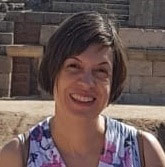
Leticia Sánchez de Andrés
Robert Gerhard and Pau Casals. Complementary visions of Music and Exile
Watch video here
Leticia Sánchez de Andrés is a musicologist specialising in XIXth and XXth century Spanish music. She is also a physicist and one of my research fields is the relationship between music and science. Andrés earned her PhD from the Universidad Complutense (Madrid) in 2006 and her doctoral thesis won the 23rd Music Research National Award of the Spanish Musicology Society. Andrés was a teacher at the Music Department of the Universidad Autonoma (Madrid) from 2008 to 2013 and a Scientific Collaborator at the Musicology Department of Universidad Complutense (Madrid) from 2006-2008 and 2013-2014. She now teaches music at the High School Cañada Real (Galapagar, Madrid). Andrés is the author of two monographs. Her first book, Música para un Ideal. Pensamiento y actividad musical krausismo e institucionismo españoles, 1854-1936 (SEDEM, 2009), analyses the music activity and thought of krausoinstitutionism (a philosophical, political and pedagogical trend of the last third of XIXth century and first half of XXth century in Spain). Her second book, Pasión, desarraigo y literatura. El compositor Robert Gerhard (Machado Libros, 2013), offers an updated biography and analysis of Gerhard's aesthetic and ideological thought. It also discusses the music of Gerhard in which literature is a prime creative stimulus, such as his cantata The Plague. Andrés has also co-edited of two books Música y cultura en la Edad de Plata (1915-1939) (ICCMU, 2009) and El Laboratorio de España: La Junta para Ampliación de Estudios e Investigaciones Científicas (SECC, 2007). Andrés led the research project Music, Thought and Science in Spain and Iberoamerica in the XXth century, a project which included the organization of an International Conference and the publication of a book with the project title (UAM, 2014). She has also been member of the editorial board of Revista de Hispanismo Filosófico and Quodlibet.
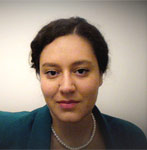
Judy-Ann Desrosiers
Watch video here
Judy-Ann Desrosiers is a doctoral candidate in musicology at the University of Montreal under adviser Marie-Hélène Benoit-Otis. Her thesis will offer an analysis of the political issues in Spanish music historiography in the 20th Century. Others research interests include the political discourse in Roberto Gerhard’s ballets Don Quixote and Pandora. She has presented papers at conferences in Quebec, Canada and the United States. In addition to musicology, Judy-Ann obtained a minor in Catalan studies and she is now completing a major in Hispanic studies at the University of Montreal. She is currently a teaching assistant at the Faculty of Music and is coordinator of the research team Musique en France (ÉMF) of the Observatoire interdisciplinaire de création et de recherche en musique (OICRM) for which she has organized many study days and conferences, the latest one being the international conference Music in postwar transition, 19th-21thCenturies held in Montreal in October 2018. Outside of academia, Judy-Ann is in charge of many sections of the opera magazine L’Opéra – Revue Québécoise d’art lyrique. She has conducted interviews with young artists and musicologists dedicated to opera and is active as a critic of operatic productions in Quebec.
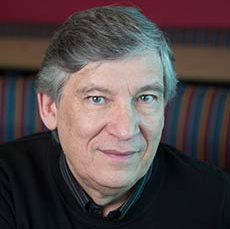
Frank Lough
Exile, Identity and the Arts in 20th Century Spain.
Watch video here
Francis Lough studied for his undergraduate degree at the University of Glasgow before moving on to take his PhD at the University of Salford. After nine years teaching Spanish in a tertiary college in Wales he moved to the University of Kent in 1990 where he was Head of Spanish until 2000 and Dean of the Faculty of Humanities from 2000-2004. He was appointed Professor of Hispanic Studies at the University of Birmingham in 2005 where he is currently the Head of the Department of Modern Languages.
His main research interests are in 20th century Hispanic narrative, in particular the avant-garde novel of the 1920's, the social novel of the 1930's, and the literature of Spanish Republican exiles. He has published on Benjamín Jarnés, Ramón J. Sender, Manuel Andújar and, more recently, the philosopher María Zambrano. He has also published articles on the Uruguayan writer Felisberto Hernández, the Portuguese novelist José Saramago and José Luis Cuerda’s film La lengua de las mariposas. His current interests centre on the literature of the Spanish Civil War the graphic novel in Spain.
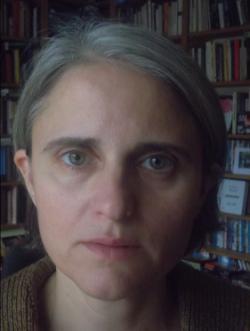
Dr Mari Paz Balibrea Enriquez
Inscribing exile into history. The view from Spanish Cultural Studies
Watch video here
Mari Paz Balibrea lectures in Spanish Cultural Studies at Birkbeck, University of London. Her work is concerned with the understanding of culture as a political intervention, with a particular focus on democratic Spain. Along these lines, she has published on the role of leftist intellectuals, on the legacy of Spanish Republican exile and on the construction of the idea of citizenship in the creative city. In 2017 she published The Global Cultural Capital. Addressing the Citizen and Producing the City in Barcelona (Palgrave). She has coordinated the collective volume Líneas de fuga. Hacia otra historiografía cultural del exilio republicano español (Siglo XXI, 2017) and is the co-editor with Antolín Sánchez Cuervo and Frank Lough of the special issue María Zambrano amongst the philosophers, published in 2018 in the journal History of European Ideas. She is currently working to expand the networks of Spanish republican exile studies, with a view to promoting and funding new approaches to its study. At Birkbeck, she directs the Centre for Iberian and Latin American Visual Studies and is currently Assistant Dean for Curriculum and Student Experience in the School of Arts.
Julian White
Emotion and Enyorança: Gerhard and the Gralles
Watch video here
Julian White studied musicology at King’s College London and Durham University. An independent researcher, White’s writings focus on aspects of Spanish century music in general and the music of Roberto Gerhard in particular. He has contributed articles on Gerhard’s folk music borrowings for Tempo magazine and on the programmatic background of the First Symphony for the Musical Times which has also recently accepted for publication his article on the secret programme of Gerhard’s Third Symphony. Chapters by him have appeared in Spanish Cultural Studies: An Introduction, the Proceedings of the 1st Roberto Gerhard Conference, The Roberto Gerhard Companion and Essays on Roberto Gerhard. In recent years he has presented papers at international conferences dedicated to the composer in Huddersfield, Barcelona and Madrid. In addition to his ongoing Gerhard research, White is engaged in writing a history of Abbotsfield House (where he currently lives). Built in the early 1870’s for Charles Lukey Collard, the head of the prestigious Collard & Collard piano firm, and designed by the celebrated 19th Century designer and architect Owen Jones, Abbotsfield played host to many famous musicians including the great Italian diva Adelina Patti and, according to the art historian Pevsner, Wagner.
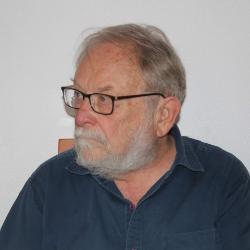
Trevor Walshaw
The Piaroa Warimé ceremony: Gerhard’s last ‘borrowing’?
Watch video here
Trevor Walshaw was born in Huddersfield in 1938. From 1963 to 1984 he taught in secondary schools in Leeds and Middlesbrough. 1984-86 was spent studying for a degree at the University of York, after which he resumed his career in teaching by taking a post in Kenya. In 2003 he retired and returned to the United Kingdom. After being accepted on the masters course in the music department at the University of Huddersfield in 2004 he was eventually awarded a PhD with thesis on the music of Roberto Gerhard. He now lives in Córdoba.
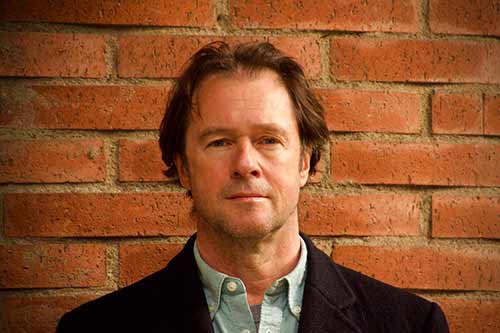
Benjamin K. Davies
Exile and cultural identity: the (paradoxical) search for universality.
Watch video here
Benjamin K. Davies is a composer, theorist and improvising pianist. He graduated in Philosophy and Social and Political Sciences from Cambridge University in 1983, and obtained a PhD in Composition from Southampton University in 2009, supervised by Michael Finnissy. In between, he worked extensively in theatre—both experimental and commercial—and contemporary dance, as composer and Musical Director. Among other periodic diversions, he farmed for a season in the Spanish Pyrenees, where he also undertook ethnographical work into high-mountain farming communities.
Based in Barcelona since 1987, he founded the music department of an existing dance and drama college in 1995, which he ran for fifteen years. He is currently head of the Composition and Theory Departments at the Liceu Conservatoire in Barcelona.
His research areas include: post-tonal harmony; the ontology of the jazz standard; music and lying; and Beethoven and Habermas’ theory of Communicative Action. He has published on Webern’s Bagatelles op. 9, Mahler’s Fourth Symphony and the opera Gaudí by Joan Guinjoan. In general he favours repertoire regarded as recalcitrant with respect to established analytic strategies. Examples are his studies of Janacek and Birtwistle.
His compositions have been performed in France, Spain, Holland, Norway, Japan and Chile. He is currently completing a Double Concerto for alto saxophone, piano and orchestra, for performance in Mexico.
https://www.conservatoriliceu.es/professors/benjamin-davies/

Darren Sproston
From Rugby League to Marriage Intrigue…
Watch video here
Darren Sproston works at the University of Chester where he is Director of the School of Arts and Media and Deputy Dean of the Faculty of Arts and Humanities. He is also Professor of Music and it is this discipline in which he continues to contribute in the Department of Performing Arts.
Darren is a composer and musicologist. He has fulfilled a number of commissions which have been performed as far afield as Moscow. Darren's principal area of musicological research has been the Anglo-Catalan composer Roberto Gerhard on whom he has published chapters and articles on his Symphonies, Concerto for Orchestra and the evolution of Gerhard’s Time-aggregate.
Darren Sproston studied at the University of Sheffield where he was awarded the Phillip John Lord Composition Prize, and the Mrs Stewart Blake Dissertation Prize. He continued his studies under Professor David Harold Cox and obtained his Master of Music degree in composition and musicology and two years later he became the first composer to be awarded a Doctor of Philosophy in original composition from the University of Sheffield.
Darren has been working as an educator for over 30 years. His sustained commitment to effective strategic leadership in academic practice and development leading to high quality student learning was recognized in 2016 by the Higher Education Academy when he was accredited as a Principal Fellow.
https://www1.chester.ac.uk/departments/performing-arts/staff/darren-sproston
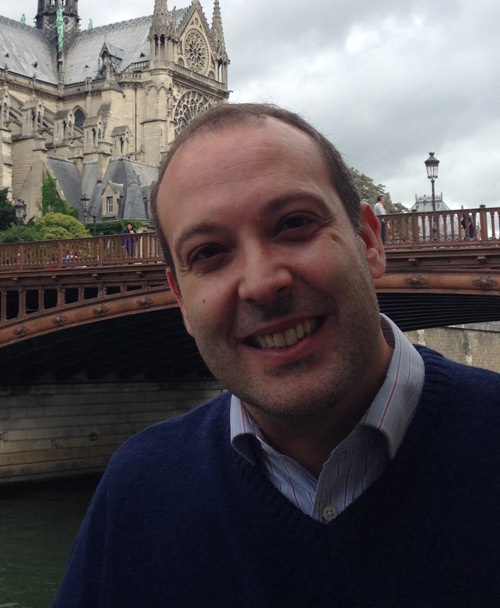
Germán Gan-Quesada
Composers in Exile: A Comparative Analysis of the work of Carlos Suriñach and Roberto Gerhard
Germán Gan-Quesada is Lecturer in Musicology at the Universitat Autònoma de Barcelona and Chair of the Publications Committee (Books) of the Spanish Musicological Society. Granted by the Paul Sacher Stiftung and the Government of Catalonia (City University of New York), his research focus on 20th-Century Spanish Music and Contemporary Music Aesthetics.
Among his publications, several contributions on the reception in Spain of the music of I. Stravinsky, P. Hindemith, R. Gerhard, and O. Messiaen (Brepols, Revista catalana de musicologia, Ashgate) should be mentioned, as well as essays on Spanish 20th-Century Chamber Music (Contemporary Music Review, Peter Lang) and Music and Politics during the Francoism (Brepols). He has been responsible for the chapter on Post-war Spanish Avant-Garde Music [Historia de la música en España e Hispanoamérica (Fondo de Cultura Económica)] and co-editor of the books Music and Francoism and Music Criticism 1900-1950 (Brepols).
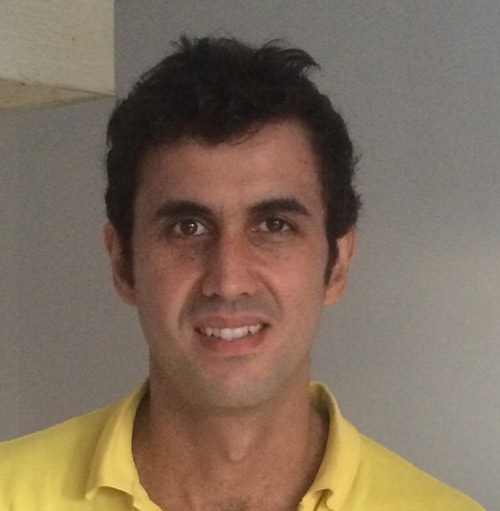
Samuel Llano
A Place with no Space: The Idea of ‘Home’ in Gerhard’s Music
Watch video here
Samuel Llano is a Senior Lecturer in Spanish Cultural Studies at the University of Manchester. He specializes in the music and sound cultures of Spain, France and Morocco. His work is grounded on different disciplines, including musicology, transnational studies, urban studies and social history. He is the author of Discordant Notes: Marginality and Social Control in Madrid (1850–1930) (OUP, 2018) and Whose Spain? Negotiating “Spanish Music” in Paris, 1908–1929 (OUP, 2012), winner of the Robert M. Stevenson Award of the American Musicological Society (2013). He is currently writing a book titled The Empire of the Ear: Musicology and the Sonic Architecture of Colonial Morocco, which studies the production of a body of music scholarship in colonial Morocco (1912-1956) and the use of discourse and music practice as means of social and racial control in this context. In addition, Llano is interested in the music of the Spanish Republican exile, and, in particular, of Roberto Gerhard, to which he has dedicated several publications.
Carlos Duque
Watch video here
Carlos Duque was born in Madrid, he is a contemporary, television and film composer, having worked for different orchestras, ensembles, TVs and production companies, including TVE (Spanish National Television), Channel 5, TVG, AtresMedia and Telemadrid. He studied analysis and composition with Carmelo Bernaola, Arturo Tamayo, José Luis de Delás and Rhian Samuel. He is a PhD in composition (City University, London) and has been a Research Fellow at University of Huddersfield, researching the electronic music of Roberto Gerhard at Cambridge University. He has been musical adviser for Radio Clásica, a division of Spanish National Radio, and is Head of Máster en Composición para Audiovisuales (Master for film and television music) at Centro Superior Katarina Gurska, in Madrid. He has written numerous papers and chapters on the work of Roberto Gerhard as well as editing new editions of his works.
Weblink: www.carlosduque.es
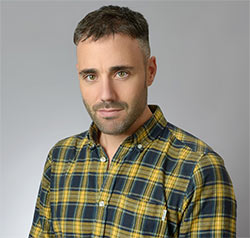
Diego Alonso Tomás
Gerhard and the Neue Sachlichkeit
Watch video here
Diego Alonso Tomás (Logroño, Spain, 1980) studied Musicology at the Complutensian University in Madrid. He received his PhD in 2015 from the Universidad de La Rioja with a thesis on the influence of Schoenberg’s music and aesthetics on Roberto Gerhard. He has been a visiting scholar at Humboldt University in Berlin (2010 and 2013), at the University of Cambridge (2011) and at Goldsmiths, University of London (2012). In 2014 he was awarded a research scholarship by the Staatliches Institut für Musikforschung Berlin for the study of the reception of Schoenberg’s music in Catalonia. He has taught courses on music analysis and music history at La Rioja University (2015 –2018), Salamanca University (2017-2018) and Humboldt Universität zu Berlin (2019). He contributed to The Roberto Gerhard Companion (Asghate, 2013) and has published in leading musicology journals such as Acta musicologica, Twentieth-Century Music and Music Analysis (forthcoming). Currently, he works as a researcher at Humboldt University in the DFG-funded project “Hanns Eisler in Republican Spain” (2018 – 2021).
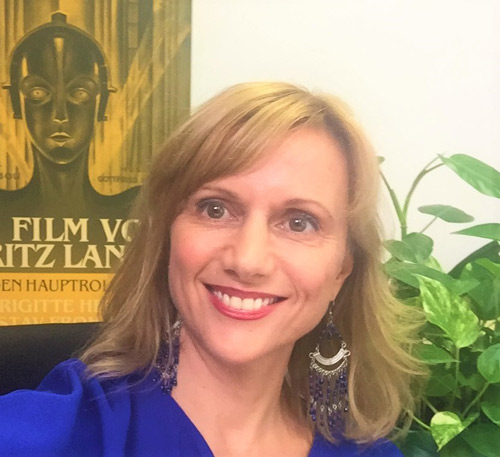
Paloma Ortiz-de-Urbina
Correspondence between Roberto Gerhard and Arnold Schoenberg
Watch video here
Paloma Ortiz-de-Urbina is Professor of German Culture at University of Alcalá in Madrid where she is also the founder and Leader of the Research Group RECEPTION https://reception.group/
She holds a BA in German and she completed a PhD (special honours) in Musicology at the Universidad Complutense de Madrid with a dissertation entitled 'The Reception of Richard Wagner’s works in Madrid (1900-1915)'. Since 1997 she has been Associate Professor at the Universidad de Alcalá, where she teaches courses in German Language, Culture and Translation. She also lectures on the MA on Literary and Cultural Spanish Studies (with a course about Richard Wagner's Reception in the Spanish Literature), in the MA on Research on Contemporary Spanish Literature ("Reception Theory") at the Universidad de Alcalá and in the MA on Composition for Audiovisual Products ("Film Aesthetics") at the Escuela Superior de Música Katarina Gurska.
Her research mainly focuses on Spanish-German cultural reception - most specifically on the musical reception of the composers Richard Wagner, Roberto Gerhard and Arnold Schönberg - and on the reception of Germanic myths in opera and cinema (Fritz Lang, German Expressionism). She has edited the complete correspondence between Arnold Schoenberg and Roberto Gerhard (Peter Land, 2019). She has authored numerous volumes, articles and research papers and has been an invited speaker at many conferences, round-tables, interviews and radio programmes, both in Spain and abroad.
https://www.uah.es/es/estudios/profesor/Paloma-Ortiz-de-Urbina-Sobrino/
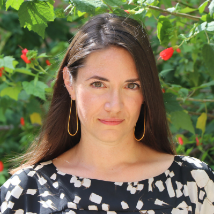
Dr. Rachel Mann
Gerhard’s Post 1950s Serial Compositions
Watch video here
Dr. Rachel Mann is an Assistant Professor of Music Theory at the University of Texas Rio Grande Valley (UTRGV) in Brownsville, Texas, USA. She completed a Ph.D. in music theory at the University of Texas at Austin, where she held a Kent Kennan Endowed Graduate Fellowship and was awarded the Herbert Colvin Award for the best student paper at the 2005 Texas Society for Music Theory conference. Prior to joining the UTRGV faculty, Mann held positions at the University at Albany, the University of North Texas, and the University of Illinois.
Dr. Mann's main research interests include the music and writings of the twentieth-century Catalan composer, Roberto Gerhard; music theory pedagogy; and educational technology. She has presented her research throughout the US, UK, Canada, Germany, and Spain and has chapters in Gerhard collections published by Ashgate and Cambridge Scholars Press. Most recently, she received a grant from the British Academy with colleague Monty Adkins at the University of Huddersfield to host a Gerhard conference in the summer of 2020 and her chapter on Gerhard’s serial techniques will appear in the forthcoming Routledge Companion to Music Theory Pedagogy edited by Leigh VanHandel. As the Senior Content Developer for Illiac Software, Inc., Dr. Mann is engaged in developing a computer-aided, music theory instruction package called Harmonia, supported in-part with funding from the University of Illinois and a Phase I STTR grant from the National Science Foundation. (Visit www.harmonia.illiacsoftware.com) Dr. Mann is a reader for the ETS Advanced Placement (AP) Music Theory exam and serves as Vice President for the Association for Technology in Music Instruction (ATMI).
Eva Moreda Rodriguez
Exile and Cultural Legitimacy
Watch video here
Eva Moreda Rodriguez is a Senior Lecturer in Music at the University of Glasgow. She is the author of the books Music and exile in Francoist Spain (Ashgate, 2015) and Music criticism and music critics in Francoist Spain (Oxford University Press, 2016), as well as numerous articles and book chapters on the cultural and political history of Spanish music from the late nineteenth century to the late Franco regime. Her current project on the early reception and dissemination of recording technologies in Spain (1877-1905) received a Leadership Fellowship form the Arts and Humanities Research Council.
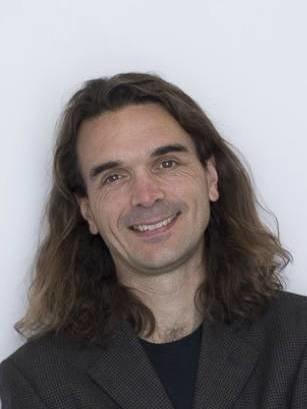
Sebastiaan Faber
The Forgotten Legacies of Spanish Civil War Exile
Watch video here
Sebastiaan Faber is Professor of Hispanic Studies at Oberlin College. He is the author of Exile and Cultural Hegemony: Spanish Intellectuals in Mexico, 1939-1975 (Vanderbilt, 2002), Anglo-American Hispanists and the Spanish Civil War: Hispanophilia, Commitment, and Discipline (Palgrave, 2008), and Memory Battles of the Spanish Civil War: History, Fiction, Photography (Vanderbilt, 2018); he is co-editor of Contra el olvido. El exilio expañol en Estados Unidos (U de Alcalá, 2009) and Transatlantic Studies: Latin America, Iberia, and Africa (Liverpool, forthcoming). From 2010 until 2015, he served as the Chair of the Board of Governors of the Abraham Lincoln Brigade Archives (ALBA). He is co-editor of ALBA’s quarterly magazine The Volunteer and regularly contributes to Spanish and U.S. media, including CTXT: Revista Contexto, La Marea, FronteraD, The Nation, Foreign Affairs, and Public Books. Born and raised in the Netherlands, he has been at Oberlin since 1999.
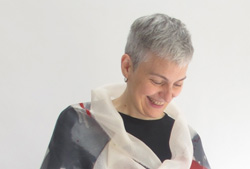
Dr Magda Polo Pujadas
Roberto Gerhard’s Aesthetics of Music: from dodecaphonic to experimental music
Watch video here
She received her doctorate in Philosophy in 1997 from the Faculty of Philosophy of the University of Barcelona (UB) for her thesis about the music of the Romanticism. For her work she was given an FPI (Personal Research) grant from the Autonomous Government of Catalonia, and she spent time at various research and document centres in Germany, Italy and the United States. She has been a professor at the Autonomous University of Madrid, the University of Valencia, Autonomous University of Barcelona, University of Carabobo (Venezuela), University of Cantabria and the Alma Mater Studiorum, University of Bologna, Ramon Llull University and the Escola Superior de Música de Catalunya (ESMUC).
She is currently a Senior Lecturer in the Department of History of Music and Aesthetics in the Art History department in the UB. She is part of different research groups and has collaborated on many different chapters of books and articles about music, literature and thought. She is the author of the books, L’estètica de la música (2007), Historia de la música (First edition 2010, Second edition 2012 and third edition 2014), La música de los sentimientos. Filosofía de la música de la Ilustración ( First edition 2010, Second edition 2012), Música pura i música programàtica al Romanticisme (2010), Música pura y música programàtica en el Romanticismo (2011),Les Vienes de Wittgenstein (2011), Filosofía de la música del futuro, (2011), Estética (2012), Pensamiento y música a cuatro manos (2014), Pensament i música a quatre mans (2014), Pure and Programme music in the Romanticism (2016), El cuerpo incalculable (2018), Gris alma (2019), A contratemps (2019) y Pensamiento musical (2019).
Her creative path has led her to create different interdisciplinary performances such as Babilònia, Scriptum , Ad Libitum, Antídot, Quartet en sol major per a violoncel sol and Volaverunt.
Olga Ger Beltran
Watch video here
Olga Ger Beltran has a degree in Geography and History from the University of Barcelona, specializing in Cultural Anthropology. She is Director of the Robert Gerhard Archive at Institut d'Estudis Vallencs. The archive preserves important documentation that Gerhard left behind when he decided not to return to his country after the Spanish civil war (1936-1939). The archive, made up of his own scores and those of other composers, books, magazines, letters, music programs, drafts, press, and other ephemera has recently been expanded thanks to the donation of the correspondence between the Gerhard brothers (Roberto, Carlos and Fernando), between 1939 and 1969, and between the brothers Carlos, Fernando and their wives with Poldi Gerhard until 1983.
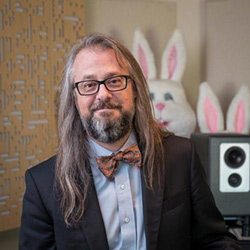
Mark E. Perry
Gerhard as Composer in Exile
Watch video here
Mark E. Perry serves as assistant professor of ethnomusicology and historical musicology at Oklahoma State University. He holds a Ph.D. in music from the University of Kansas, and his dissertation explores Catalan nationalism in relation to the early works of Roberto Gerhard. His research interests include Spanish music, Roberto Gerhard, minimalism in music, and Electronic Dance Music. Active as a scholar, he has presented papers at national and international conferences such as the American Musicological Society, Society for American Music, Society for Ethnomusicology, and International Council for Traditional Music. He has been invited to present his research at the Universiteit van Amsterdam, Katholieke Universiteit (Leuven), and the Arnold Schönberg Center (Vienna). Engaged in publishing, he has contributed to the Roberto Gerhard Companion (Ashgate, 2013) and many articles to such important music dictionaries as Die Musik in Geschichte und Gegenwart and the Grove Dictionary of American Music. He has also served as the recording review editor for the journal American Music.

Marco Ramelli
The influence of the Spanish Civil War in Gerhard’s guitar music
Watch video here
The Spanish Civil war constitutes a very tough and dramatic chapter of Gerhard's life. The personal connection of the composer with this tragic event was perhaps the reason why the BBC commissioned to Gerhard incidental music for two radio and TV adaptations of important books set during the Spanish Civil War. In both compositions, Gerhard decided to include the guitar, an instrument widely associated with the Spanish and Catalan culture.
The first incidental music was composed in 1957 for a radio program dedicated to the book The Revenge for Love by Wyndham Lewis. Gerhard decided to include the guitar in combination with three violins, a viola, a cello, double bass, percussion, and a harp. Starting from the material written for this incidental musical, Gerhard elaborated the same year a solo guitar work for the English guitarist Julian Bream and entitled Fantasia (1957).
In 1965, Gerhard was asked to compose the incidental music for the television series For Whom the Bell Tolls. The series consisted of four episodes dedicated to Ernest Hemingway’s masterpiece. It is reasonable to maintain that Gerhard did not conceive the music merely as a background complement to the television series, but rather as a way to reflect on the Spanish Civil War. Gerhard used symbolic musical motifs, quotations and recurrent motifs to represent the plot of the book and to reflect upon the main themes emerging from it–love, war and death. His compositional approach to this work is very similar to the one he used in his ballets Don Quixote and Pandora, where a complex use of the musical material creates references to the political situation of his country. In this case, as in the two ballets, the links were not meant to be perceived easily by the British public, nevertheless they remain a crucial element of this composition. Unveiling their meaning was essential to deeply understand the work and to develop my concert arrangement of the composition.
Marco Ramelli is lecturer in Guitar, TU Dublin Conservatoire. He graduated from the Royal Conservatoire of Scotland with a Masters Degree of Performance (APEL) and obtained a Doctor of Performing Arts same institution in 2019. Marco Ramelli has performed all over Europe invited in important concert halls and Festival. During his career he has been awarded various first Prizes in international competitions in Italy, Spain, UK, France and Serbia. As a composer, Marco won the "World Guitar Composition Competition" and his music is performed in Italy and abroad by internationally acclaimed ensemble and soloist. In 2018 he released an album with Brilliant Classics with the complete solo music by Federico Mompou and Roberto Gerhard. He has also made recordings for Nimbus, Naxos and Dynamic records.
His dedication to music is not only confined to his performances: Marco is also Artistic Director of some music event in Italy, Czech and Ireland - for instance the Festival Corde d'Autunno in Milan and the Dublin Guitar Symposium - as well as a very enthusiastic guitar teacher. Marco has given lecture-recitals at different institutions and festivals, including Hong Kong guitar Symposium, Royal Conservatory of Scotland, DIT conservatory, RNCM Manchester, Istituto Superiore di Studi Musicali "Rinaldo Franci" and Istituto “Luigi Boccherini” Lucca.
Belén Pérez Castillo
Cantares: seven songs of an absence
Belén Pérez Castillo is a Lecturer at the Department of Musicology, Universidad Complutense, Madrid. Her area of expertise is twentieth-century and contemporary Spanish music and is currently involved in the research of music, politics, and exile. She belongs to the research group “Música en los márgenes. Diálogos y transferencias entre España y las Américas (siglos XIX y XX)”. Her articles have been published by Ashgate, Brepols and journals such as Revista de Musicología, Cuadernos de Música Iberoamericana and Observatoire Musical Français. She has contributed to the New Grove Dictionary of Music and Musicians and Diccionario de la Música Española e Hispanoamericana. Since 2006 she has organised the seminar series “Diálogos con la creación musical” at the Universidad Complutense. She has frequently collaborated on programmes with Radio Clásica of Radio Nacional de España.

Foregrounding Mobility — a new approach to understanding the legacies of migrant musicians
Norbert Meyn and Beth Snyder, Royal College of Music
Watch video here
‘Music, Migration and Mobility’ is a multi-year AHRC-funded cross-disciplinary research project based at the Royal College of Music. We are performers, music scholars, human geographers and cartographers exploring the impact made by migrant musicians from Nazi Europe on British musical life. In our work we interrogate the tendency in musical practice and scholarship to fix musicians and their work in particular (national and geographical) lineages and sites, marginalising and Othering musics that resist these narratives. We ask, instead: what can we better understand about the musical practices of migrant musicians when we foreground their mobilities (migratory and otherwise)? In this presentation two members of the team discuss how this approach informs different dimensions of the project’s work—in performance and in archival research.